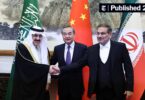Achieving an equally high education standard in all the federating units has become an illusive dream. Fast decline in the quality of education has been witnessed over the past five decades for which successive governments and academia is equally responsible. In the first two and half decade since independence, the degrees awarded by Pakistani universities were accepted in foreign countries for the purpose of admissions to the highly reputed universities of western countries and employment there. In the decade of 70s it was the popularly elected leadership who gave death blows to both education system and flourishing economy.
In the PTI government there is growing realisation about not only arresting further degeneration of education system but also bringing a significant improvement in it so that once again the lost prestige of degrees awarded by the higher education’s institutions is restored abroad. Federal education minister Shafqat Mehmood, while addressing a press conference at Peshawar Press Club, outlined broad parameters of federal government policy aimed achieving the goal of equal education system although higher education has been devolved to the provinces under 18th Amendment. Since then the quality of education has nosedived and higher education has become unaffordable for the students of middle class families who contribute to national development and the children of ruling political elite classes do not.
Federal Education ministry in its framework has identified four key areas which will focus on improving quality of education, enrolment of out of school children, introducing a uniform education system and skill development of youth. Although introduction of uniform education system was easier before the devolution of higher education to the provinces yet the federal government efforts of education sector reforms were torpedoed by the PML-Q government in Punjab and MMA government in Khyber Pukhtunkhwa. It will now be a miracle if the present federal government succeeds in persuading the provincial governments on adopting equal education system for which liberal financial allocations will be required for investment in elementary and secondary and higher education.
Elementary and higher education standard has improved to greater extents in Khyber Pukhtunkhwa in the previous PTI government but still there is room for more improvement. However, in the same government the standard of higher education went down further due to the political interference of former chief executive of the province, minster for higher education and speaker Provincial Assembly. Institutions of higher education are still plagued by nepotism and inefficiencies in course and research work. Unbridled powers in the hands of universities’ syndicates, arrogant and averse to teaching and research old guard faculty members have to share greater part of degeneration in the quality education. None of the syndicate and old guard faculty members has ever produced quality research worthy of publication in the top notch and the most prestigious International Research Journal “Nature”. Ironically, the young schleps who have done top class research in foreign universities and published it in “Nature” are completely ignored for appointment on faculty positions because they don not have political backing. One such voracious research scholar is Dr. Shahid Khattak who was even excluded from the short listing process for the appointment as Assistant Professor in the public sector universities, Isalmai College University and Hazara University with asingle line cliché observation: Your degrees are irrelevant. Likewise another young scholar of English Dr. Akbar Ali was placed at the bottom of the merit list in Islamia College University. The despicable and shameful culture of gross violation of merit introduced by the previous ANP government is all pervading in the PTI government as well. In such a dirty scenario how can the cherished dream of equal education system be realised. Actions speak louder than words. Will the PTI central leadership really focus on improving the quality of education by curtailing the powers of syndicates, ensuring appointments of faculty members strictly on merit, making higher education inexpensive and strengthening the research environment with the provisions of state-of-the-art equipment and smooth supply of chemicals to the institutions of higher education in addition to funding for subscriptions to reputed international research journals and providing access IDs to students? The answer is unfortunately not in affirmative.






